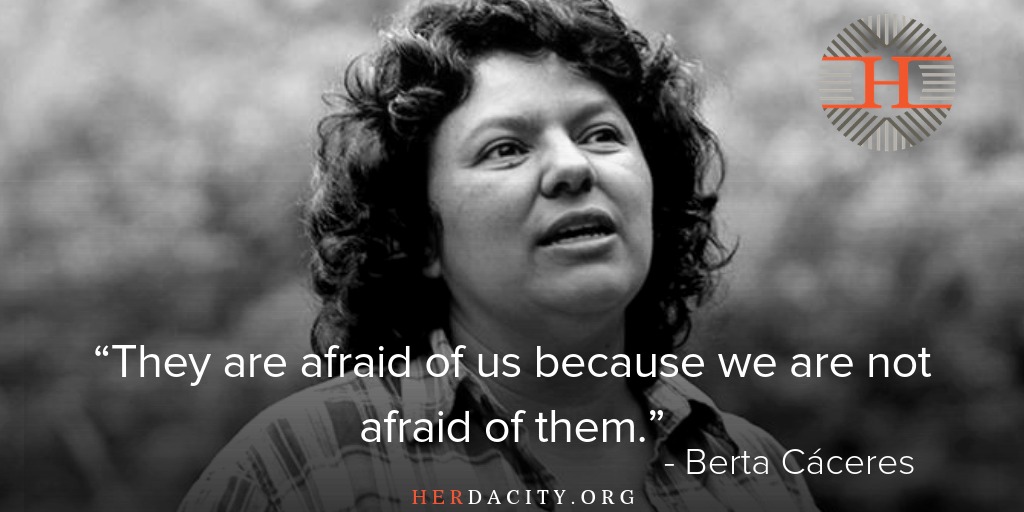Persecution, harassment and the murder of human rights defenders is a regretful reality in most of the Latin American region. According to the 2018 UN report on reprisals (Human Rights Council, 2018), between 2017 and 2018, there were over 100 reported threats, harassments and killings of human rights defenders in Colombia, Cuba, Guatemala, Honduras, Mexico, Trinidad and Tobago and Venezuela, , , . Moreover, the case of attacks against human rights defenders in Nicaragua has been well documented by both UN and OAS institutions. In 2016, Berta Cáceres’s death, one of the most important environmental rights and women’s rights activists in Honduras and the rest of Central America, generated a generalized commotion in the world, making this problem even more visible. This is definitely a reason of concern.
International law has not been interpreted unaware from this circumstance. Following international standards, the persecution, harassment and death of a human rights defender may constitute a breach of international obligations in determined circumstances. Particularly, situations like these are generally analyzed under the rights to life and freedom from extrajudicial executions, the rights to personal integrity and freedom from torture and cruel, inhuman and degrading treatment, and under the right to liberty and freedom from arbitrary detentions.
For the relevant purpose of this blog post, if there exists a context of persecution, harassment and murder against human rights defenders, states are obliged to adopt positive measures to prevent them. Failure to adopt such measures generates international responsibility of a state, and may be claimed before international courts or other bodies of international human rights law.
The answer to compliance with these positive measures resides within public policy. The protection of human rights defenders provides for a duty for Governments and Legislatures to incorporate within their planning, budgets, and other resources the protection of human rights defenders as a priority, within the previously described context.
Following with case law from the Inter-American Court of Human Rights (on cases concerning death of human rights defenders in Honduras – Kawas Fernández and Luna López), such a public policy must focus on:
Publicly sensitize the important role that human rights defenders have. In some States, individuals criminalize or repel the role of human rights defenders for different reasons. This contributes to the context of persecution, harassment and murder of human rights defenders. In such case, States should be able to adopt measures to sensitize individuals on the important role that human rights defenders have within States to uphold these rights and the rule of law;
Develop measures from an interinstitutional and integral perspective. This supposes incorporating education to relevant public officials, as the police; promoting investigation and sanctions to individual perpetrators of violations to human rights against defenders, among other possibilities;
Include rapid response mechanisms when the risk to the rights of an individual human rights defender increases;
Develop mechanisms to objectively calculate the risk an individual human rights defender suffers, creating the possibility for an objective assessment of when a human rights defender requires special and individualized measures for their protection;
Apply mechanisms to document and systematize available information on risks to human rights defenders. This will allow to obtain relevant information for the more effective application of the public policy, inasmuch as it will allow to identify patterns, structures, and other elements relevant for the investigation of such violations, and for the prevention of similar situations, and
Assure that enough resources (financial, human) are allocated to the implementation of the public policy. This must include enough allocation of funds to the prosecutorial offices investigating cases of human rights violations against human rights defenders.
Moreover, the development of such a public policy must involve civil society organizations and other human rights defenders, as the group that is most interested to adopt this measure. Otherwise, it would breach a duty of consultation to relevant stakeholders on the development of public policies concerning human rights.
Aside from the standards indicated before, states have liberty to design what their strategy will be to protect human rights defenders, insofar they are effective and not an “empty” measure, which is destined to fail from its creation.
Thus, states have an important role in the protection of the defense of human rights. Human rights defenders have an important role in the protection of the rule of law, democracy and the rights of others. Aware of their relevance, international law requires states to protect them. The implementation of adequate public policies in favor of human rights defenders, then, is cornerstone for compliance with international human rights obligations within the state.
References
Herdacity, Bérta Cáceres, 2016, available at: https://herdacity.org/berta-caceres/
Human Rights Council, Cooperation with the United Nations, its representative and mechanisms in the field of human rights, U.N. Doc. A/HRC/39/41, 13 August 2018.
Por: Edward Pérez – LL.M. University of Cambridge. Senior Attorney and Project Manager at Inter American Institute for Social Responsibility and Human Rights


